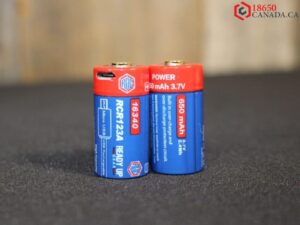Battery chemistries are integral components of various applications, powering devices ranging from small electronics to electric vehicles. Understanding the different types of battery chemistries is essential for selecting the most suitable option for specific needs. This article aims to delve into the characteristics, advantages, applications, and considerations of popular battery chemistries.
Different Types of Battery Chemistries
Lithium-ion (Li-ion) Batteries:
Li-ion batteries have gained widespread popularity due to their high energy density, lightweight design, and longer lifespan. They find extensive use in portable electronics, electric vehicles, and renewable energy storage systems. However, considerations such as temperature sensitivity and the potential for thermal runaway require careful handling and monitoring.

Lead-Acid Batteries:
Lead-acid batteries have been a reliable workhorse in various applications for decades. They offer robustness, affordability, and the ability to deliver high current. Commonly used in automotive, uninterruptible power supply (UPS), and off-grid energy systems, lead-acid batteries are known for their ability to handle deep discharges. However, they have lower energy density and require regular maintenance.
Nickel-Cadmium (Ni-Cd) Batteries:
Ni-Cd batteries exhibit excellent performance in extreme temperatures and high discharge rates, making them suitable for industrial and professional applications. They are commonly utilized in emergency backup systems, medical devices, and portable power tools. Despite their long cycle life and durability, Ni-Cd batteries are known for their cadmium content, which raises environmental concerns.
Nickel-Metal Hydride (NiMH) Batteries:
NiMH batteries offer higher energy density than Ni-Cd batteries while being more environmentally friendly. They find applications in hybrid vehicles, cordless phones, and portable electronics. NiMH batteries have a relatively low self-discharge rate but are prone to memory effects, which can affect their overall capacity.
Other Battery Chemistries:
Several emerging battery chemistries, such as lithium polymer, zinc-air, and solid-state batteries, show promise for future applications. Lithium polymer batteries offer flexibility in form factor, while zinc-air batteries offer high energy density. Solid-state batteries aim to overcome safety concerns and offer even higher energy densities in the future.
Choosing the Right Battery Chemistry:
Selecting the appropriate battery chemistry depends on several factors, including energy requirements, power output, cost, and environmental considerations. Each application has unique demands, and careful evaluation of these factors is crucial to ensure optimal performance and safety.
Future Developments and Emerging Technologies:
Battery technology continues to evolve rapidly. Ongoing research and development focus on enhancing energy density, improving safety, reducing costs, and minimizing environmental impact. Advancements in solid-state batteries, lithium-sulfur batteries, and other innovative chemistries hold the potential for even greater improvements in the future.
Final Thoughts
Understanding the different types of battery chemistries is vital for selecting the right power source for specific applications. Li-ion, lead-acid, Ni-Cd, and NiMH batteries offer a range of advantages and limitations, catering to diverse needs across industries.
As technology progresses, emerging battery chemistries show promising advancements, paving the way for more efficient, eco-friendly, and high-performing energy storage solutions. By considering the unique characteristics and requirements of each battery chemistry, individuals and industries can make informed decisions to meet their power needs effectively.

